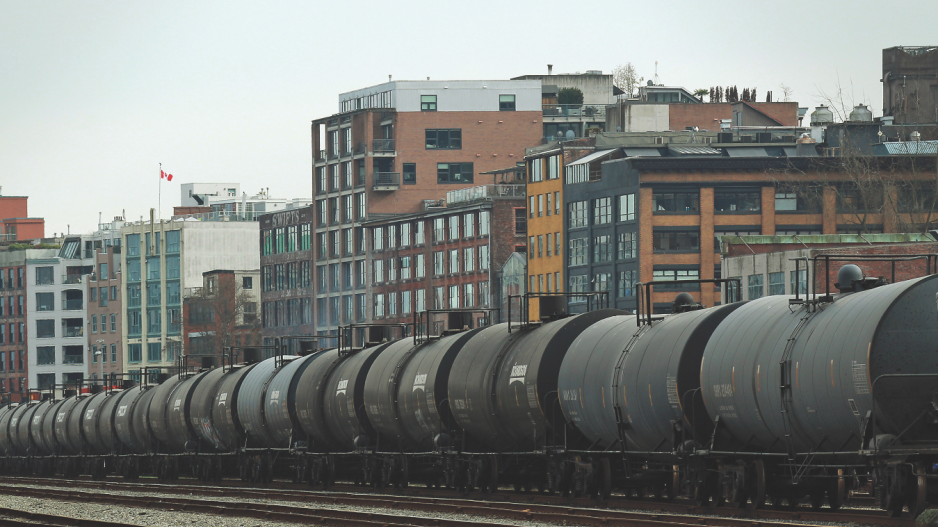Metro Vancouver mayors and councillors concerned about shipping oil and coal by rail are teaming up with their counterparts south of the border.
Several Metro Vancouver-area mayors and city councillors have joined a cross-border group called the Safe Energy Leadership Alliance (SELA) to strategize around shared concerns about shipping oil and coal by rail. Elected officials from Washington State, Montana, Idaho and California are members of the group.
For some time, municipalities across Metro Vancouver have said they need more information about dangerous cargo as oil by rail shipments increase and as a proposal to ship thermal coal through Fraser Surrey Docks proceeds.
For instance, following the Lac Megantic disaster in 2013, White Rock mayor Wayne Baldwin discovered the same type of explosive oil from North Dakota’s Bakken region was traveling through his community.
During a press conference held before the group’s quarterly meeting in Vancouver, King County executive Dow Constantine said increased shipments of oil by rail through Seattle are a safety concern. The long trains are also causing traffic congestion.
“A recent US government study predicted that trains hauling oil and ethanol will derail 10 times per year, causing $4 billion in damage and endangering the lives of those who live along the rail lines,” Constantine said.
Shipping oil by rail is lucrative and at times producers of other commodities, like grain or lumber, have had difficulty getting their product shipped. Between 2011 and 2013, oil by rail shipment increased tenfold in Canada, according to the Conference board of Canada.
One of the things the group is focused on is getting rail legislation updated, said Vancouver city councillor Andrea Reimer, a member of SELA. That legislation is the responsibility of the federal government in both Canada and the United States.
“You have a rail line that was written over 100 years ago when trains were moving through sparsely populated areas,” she said.
“These rules did not in any way perceive that they would be moving through hundreds of communities and that some of those communities have very large populations.”
While some would argue pipelines are a safer way to ship oil, Reimer said pipelines also pose a safety and environmental danger to communities. Reimer is a member of Vision Vancouver, a civic political party that opposes Kinder Morgan's proposal to expand its Trans Mountain pipeline.
The City of Vancouver is currently receiving yearly reports from CN and CP detailing the dangerous goods that have moved through the city, while White Rock gets information from the Burlington Northern Santa Fe railway one month after shipments have passed through the municipality.
Metro Vancouver municipalities say the lack of information makes it impossible for emergency services to plan adequately in case of an explosion, fire or chemical leak.
A motion passed today at the Union of British Columbia Municipalities convention asked the federal government to create a national strategy for the transportation of dangerous goods by 2020.
@jenstden




